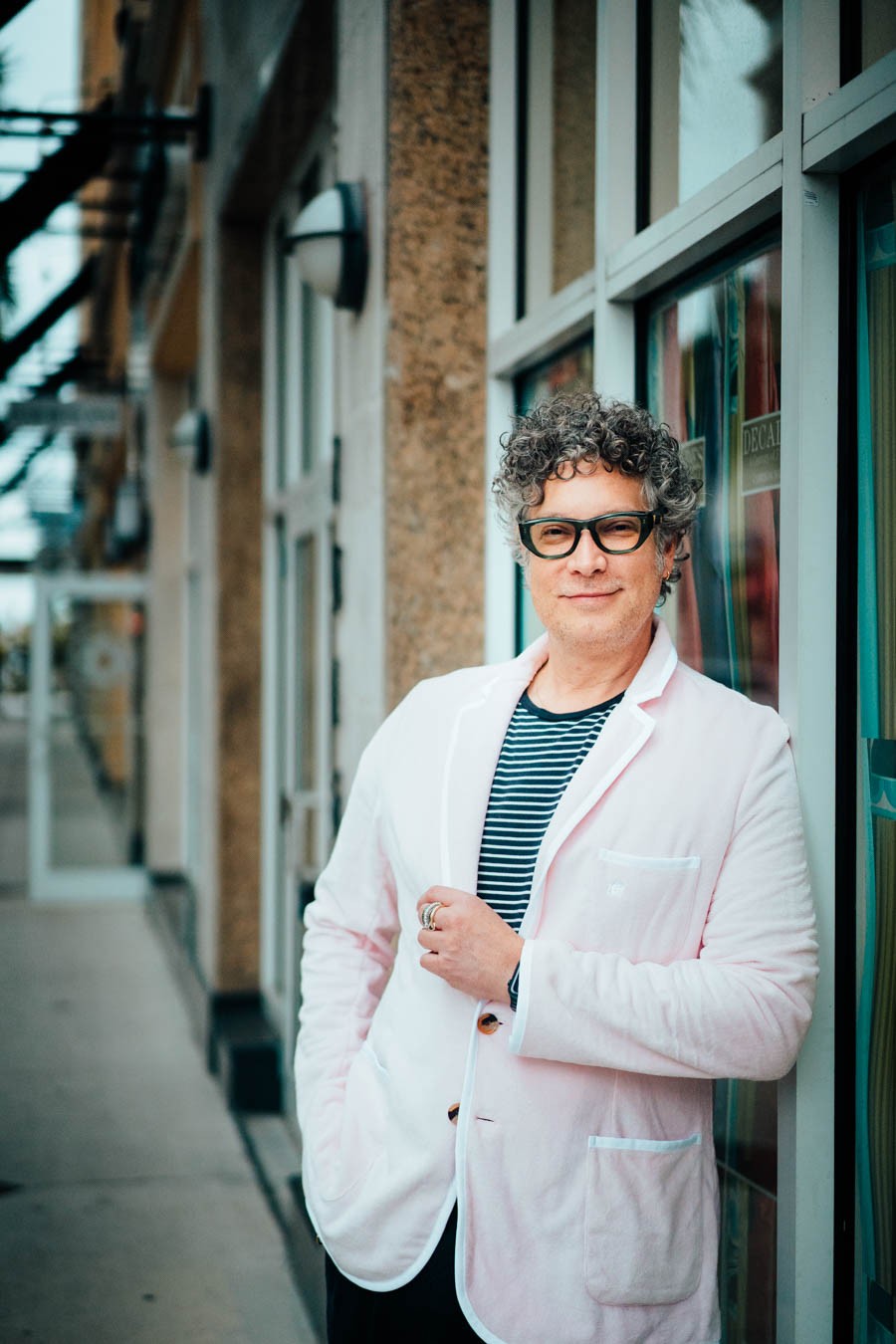T.Georgiano’s Boutique hosted an afternoon of conversation and curated vintage fashion with Cameron Silver, founder of Decades Inc., acclaimed vintage retail store in Los Angeles. Worshiped by fashionistas and collectors alike for an unparalleled collection, designer clothing and accessories date from the 1920s to today. After interviewing Silver, it became clear that he’s been called the “King of Vintage’’ for good reason.
SRQ: When did you first become interested in fashion?
Cameron Silver: I’m an only child, and my parents would take me to see every movie with them because it was cheaper than getting a babysitter. So a lot of my earlier inspiration came from films. The inception of it though was in 1977 when they took me to see Woody Allen’s Annie Hall. I fell in love with Diane Keaton’s look. It was somewhat masculine: fedora hat, vest, baggy khakis, undone loose ties. Very Dietrich-inspired. My parents ended up getting me a similar outfit and I wore it to Fred Segal, that sort of seminal L.A. store, and every sales associate freaked out at how cute I looked. That’s when I first realized the power of fashion and self-expression.
SRQ: What encouraged you to open Decades (age 27, 1997)? Did you always know you wanted to own a boutique? If not, how did that come to fruition?
Silver: Decades was a total fortuitous accident. I enjoyed playing shop as a kid and worked retail all through high school into college, but I initially got into acting and singing because I loved theater and Broadway. I even did an album in the mid 90s I thought I’d win a Grammy for. But although I was good, I wasn’t that good. So I ultimately had to emotionally mature and be honest with myself in order to move past that dream and succeed elsewhere. From there Decades just sort of happened, with no anticipation of it becoming what it is today. That’s why I tell young people you can’t control your destiny—sometimes you have to surrender to fate and fortuity.
SRQ: How would you describe the impact fashion has on culture?
Silver: Fashion is paramount because it’s a barometer of how we lived, live, and will live. There’s a reason why the most financially lucrative exhibitions at museums tend to be fashion exhibitions, because it’s a fairly tangible way for people to learn about history. You can look at the progression of fashion and see women’s liberation happening, the sexual revolution happening, imancipation—there is so much rich history you can see happening through the clothing and shoes worn throughout time. And that’s why I like to say that what I do is kind of the United Nations of fashion because it brings people together.
SRQ: You have an impressive list of accomplishments, from opening a boutique, writing a book, styling celebrities, starring in a reality TV show. Is there an achievement you are most proud of or were perhaps most surprised by?
Silver: Oh, hands down the time I was named one of Time magazine’s “25 Most Influential Names and Faces in Fashion.” I honestly didn’t think it was real. I got a call from this random British number and thought: “Who in the world is pulling this elaborate joke?” But it was legitimate and really momentous because that was a time when getting attention was difficult, and I had only been in business a couple years. So very unexpected.

SRQ: How is working in fashion different today than from when you first started?
Silver: It’s night and day. I think the biggest difference is that things were not ubiquitous back when I began, stores weren’t everywhere. Now, everything is everywhere. I remember as a kid waiting to hear that September Vogue magazine drop inside the mailbox. That was the first time you would get to see what is happening in fashion. Now you can go on social media and see instantly. That’s why with Decades, we try to keep it more visceral and in the moment. Only a couple things live online to promote that in-person shopping experience, and everything is ephemeral—you either take what you want now or you lose it.
SRQ: What advice would you give someone looking to grow within the fashion industry? I do a lot of mentorship with younger people, which I’m very passionate about. Plus I’m an only child, so I might need someone to change my diaper in five or so years—so I have my own agenda, too. But I tell them you have to know your fashion. Read my book, go into thrift shops, learn about designers, work in retail. I always say the best thing to do is work in a store, because for fashion, especially fashion designers, it means nothing until you get it on someone. It’s all about matchmaking. So I think it’s important to work in a store and experience how people feel in certain clothing, what they gravitate towards and why they buy it.
SRQ: What other dreams or ambitions remain on your professional bucket list?
Silver: I’ve always wanted my own brand, that’s probably the top achievement I’d still like to accomplish. I’ve done a lot of collaborations, but not quite something of my own yet. I’ve also directed numerous brands, but have never had a creative director gig, which is something I’d love to do. Oh, and there’s a new TV project that was pitched to me that I’m pretty excited about. It really hits on that United Nations of fashion philosophy I mentioned earlier, and how—similarly to that of food—fashion brings us together. There hasn’t really been a good show about fashion since Style with Elsa Klensch 25 years ago, or Jeanne Beker doing fashion files. And it would allow me to do something with fashion, travel and culture. SRQ










